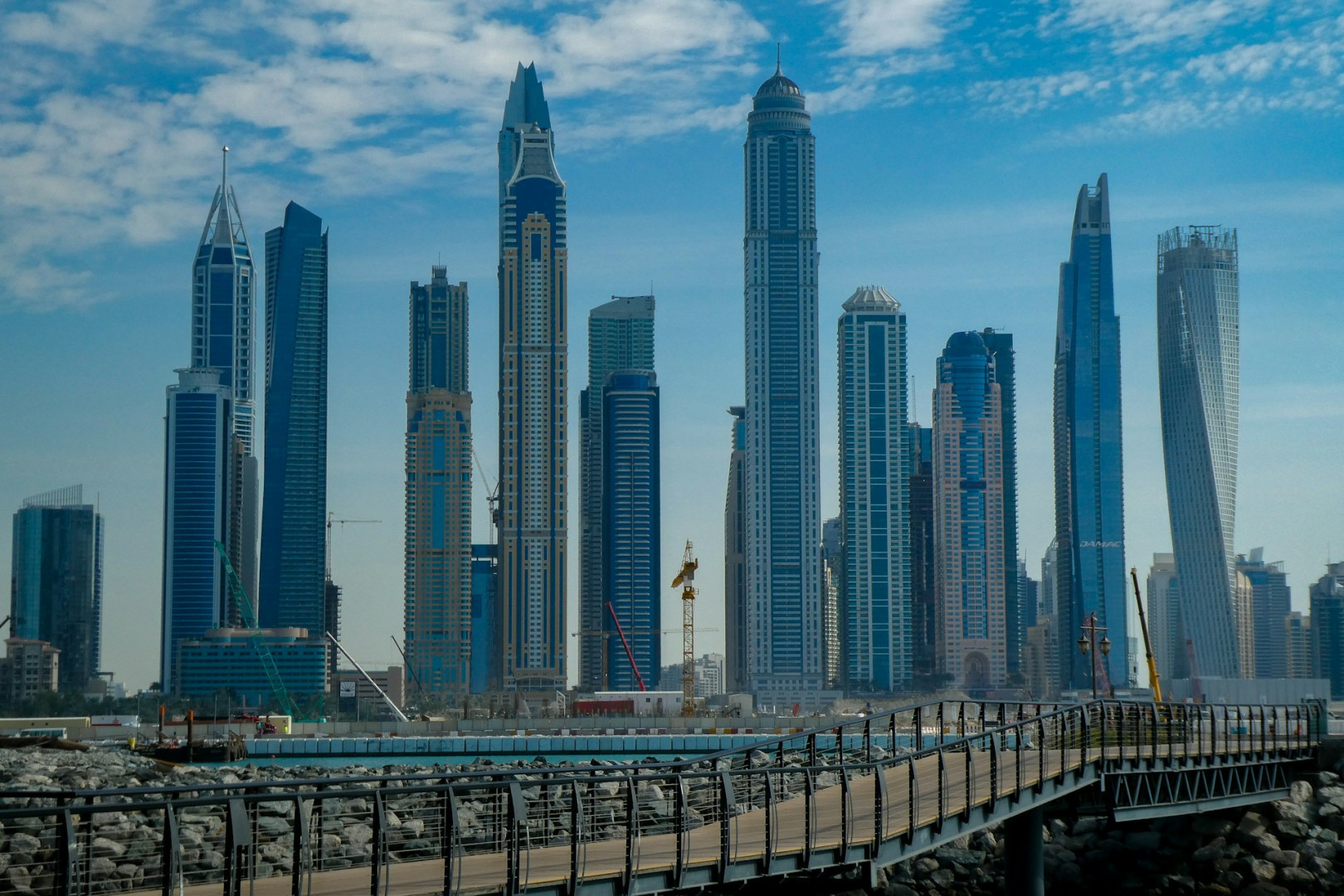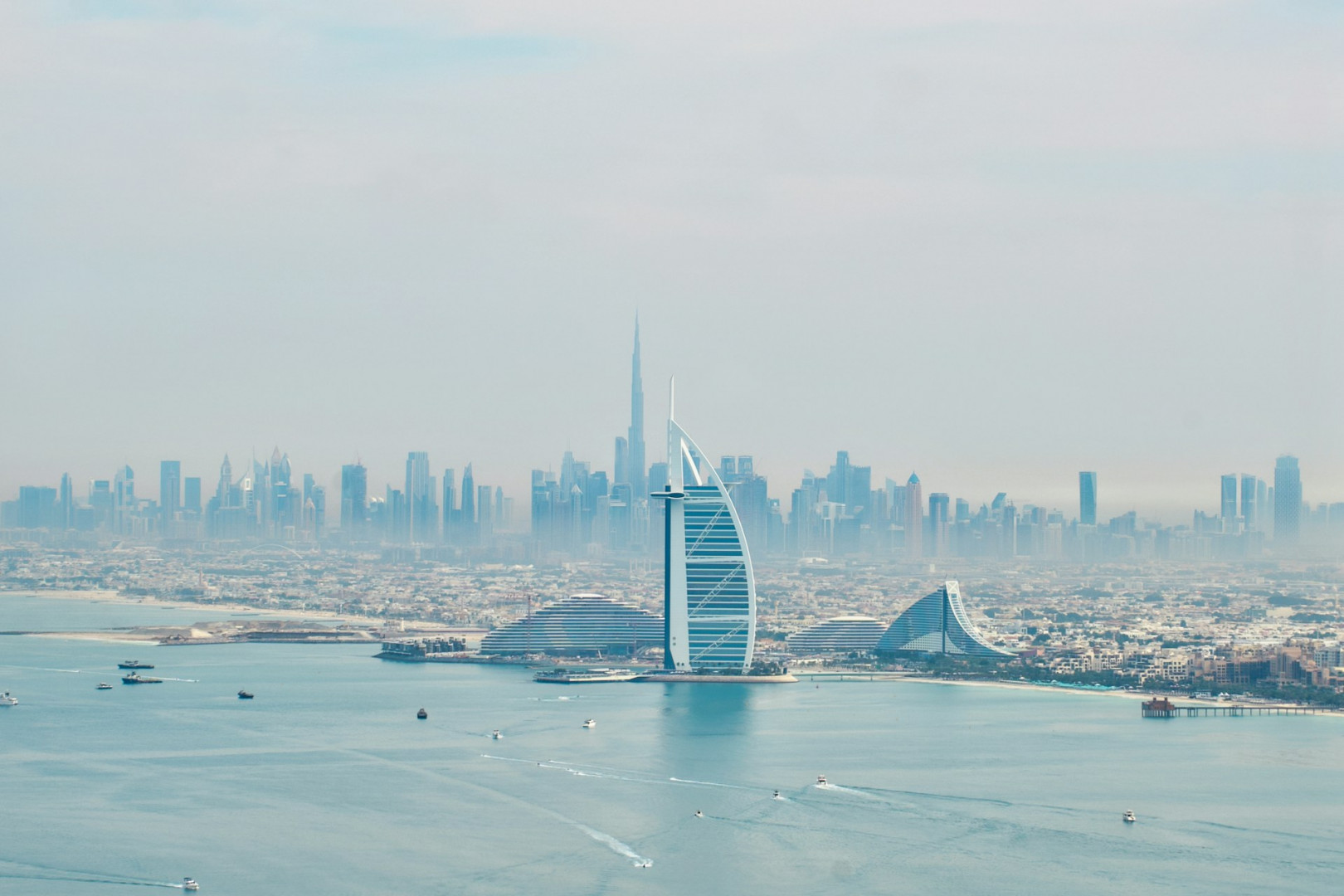
Off-plan properties
About us
Obtaining a mortgage in Dubai as a non-resident is a strategic investment affording access to one of the world’s most exciting property markets. Lending guidelines for non-residents are generally more stringent than for UAE residents, and any prior knowledge of rules and procedures will help ease the application process. This guide explains how to get a mortgage in Dubai for non-residents and lists all the paperwork you need in one place.
Some categories of non-resident are eligible to buy property in Dubai’s ‘freehold’ areas – which include Palm Jumeirah, Dubai Marina and Downtown Dubai – at a lower loan-to-value (LTV) ratio than UAE nationals and resident expats. UAE nationals can borrow up to 85 percent of a property’s value, while expatriates can borrow up to 80 percent, but non-residents generally obtain around 50 percent to 60 percent LTV. Practically speaking, this will require a 40 percent or 50 percent deposit when applying for a non-resident mortgage to buy property in Dubai.

First, contact a mortgage advisor based in Dubai specializing in non-resident home loans. A mortgage advisor can review your finances – such as how much you earn, what you owe, and how you manage debt – and identify lenders that provide attractive rates and terms for non‑resident borrowers. Next, select a non-resident repayment mortgage product based on interest rates, loan terms, and fees for processing your application and survey fees. Considering that non-resident loans tend to have slightly higher interest rates, investing time in shopping around could save you tens of thousands of dirhams over the life of the loan.
Once you’ve chosen a product, submit your documents to receive a pre‑approval letter. Pre‑approval shows the maximum loan amount a lender will fund, giving you an advantage when negotiating the purchase of a property. Start searching for properties in an approved freehold community while waiting for pre‑approval. Work with a licensed realtor who can guide you through local non‑resident requirements and help you identify properties that meet the lender’s criteria regarding location, developer reputation, and property age.
Once the pre‑approval is granted and you have selected a qualifying property, enter into a sale agreement and complete the mortgage application. At this point, the lender may request follow-up information – such as a valuation report on the property – to confirm that the asset’s value aligns with their lending guidelines. Ultimately, the mortgage is registered with the Dubai Land Department (unless it’s an Islamic mortgage). You will need to pay registration and valuation costs (around 4 percent of the purchase price) as well as any mortgage arrangement or processing fees. Upon settlement, the DLD will register the property in your name and record the mortgage lien on the title deed.
Preserve your creditworthiness in your home market by paying off debts and paying bills on time. A well‑managed credit history increases the likelihood of securing a favorable offer from lenders in the UAE. Have extra cash available for additional expenses beyond your deposit, such as property registration fees, mortgage setup costs, valuation fees, and compulsory insurance premiums. These could add an additional 7 percent to 8 percent of the purchase price, so factor them into your budget.
If you’re earning in a different currency, bear in mind that foreign exchange rates can affect your monthly mortgage payments and long-term affordability – factor this into your calculations as much as possible. Finally, consult with mortgage brokers, financial advisors, or property consultants who are abreast of current lender promotions, updated regulations, and special offers available to non-resident buyers. Their expertise can help you navigate the application process efficiently and avoid unexpected costs.
A non-resident mortgage in Dubai is possible if you understand the eligibility criteria and required documentation, and work with experienced professionals. With the right lender, proper legal compliance, and budgeting for associated costs, non-resident investors can obtain favorable financing and capitalize on growth opportunities in Dubai’s property market. Start your mortgage process by compiling the listed documents, securing pre‑approval, and selecting a property in an approved freehold area. And DDA Real Estate can help you with that. We provide consulting services in the UAE. Our specialists will help you with getting a mortgage Dubai.